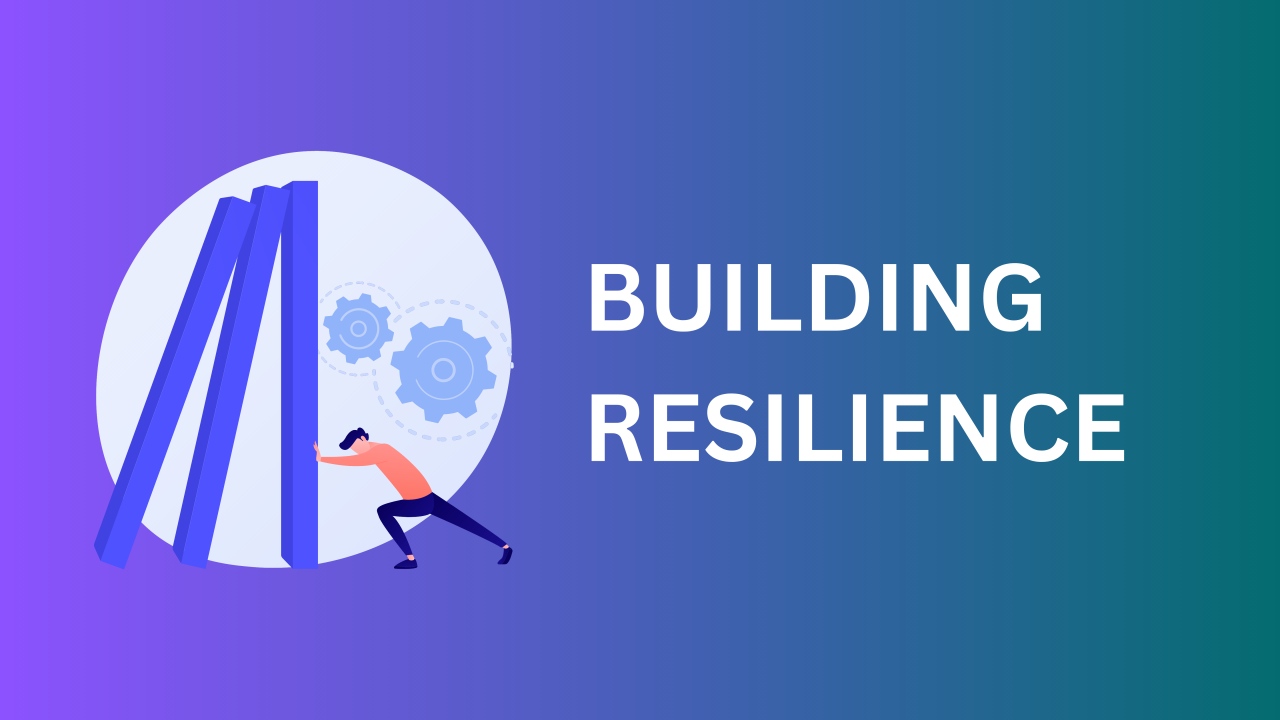Building Resilience: Strengthening Your Inner Foundation
In the journey of life, we encounter various challenges, setbacks, and adversities that can shake our foundation and test our resolve. However, it’s not the challenges themselves that determine our fate; rather, it’s our response to them. Building resilience is essential for not only surviving but thriving in the face of adversity. Resilience equips us with the mental, emotional, and psychological strength to bounce back from setbacks, adapt to change, and grow stronger through adversity.
In this article, we will explore the concept of resilience, its importance, and practical strategies for developing resilience in our lives.
Understanding Resilience:
Resilience can be defined as the ability to withstand, adapt to, and recover from adversity and stress. It’s not about avoiding challenges or pretending they don’t exist; instead, it’s about facing them head-on and emerging stronger on the other side. Resilience is not a fixed trait but rather a skill that can be cultivated and developed over time through intentional effort and practice.

Importance of Resilience:
Resilience plays a crucial role in various aspects of our lives, including mental health, relationships, career success, and overall well-being. Here are some key reasons why building resilience is important:
Mental Health:
Resilience is closely linked to mental well-being. Individuals with higher levels of resilience are better able to cope with stress, anxiety, and depression. They possess a positive outlook on life and are more equipped to manage their emotions effectively.
Adaptability
In today’s fast-paced and unpredictable world, adaptability is a valuable skill. Resilient individuals are flexible and open to change. They can navigate through uncertain circumstances with ease and make the necessary adjustments to thrive in new environments. Why not try these out to explore on building resilience helps us to combat the effects of stress by giving us the ability to adapt and ‘bounce back’ from adversity?
Success in Relationships
Resilience is vital for building and maintaining healthy relationships. It enables individuals to communicate effectively, resolve conflicts constructively, and support each other during challenging times. Resilient individuals are more empathetic, understanding, and compassionate towards others.
Achievement of Goals
People with high levels of resilience are more likely to set ambitious goals and persevere in the face of obstacles. They view setbacks as temporary setbacks rather than insurmountable barriers and remain focused on their objectives.

Practical Strategies for Building Resilience:
Now that we understand the importance of resilience, let’s explore some practical strategies for developing resilience in our lives:
Cultivate a Growth Mindset
Embrace the belief that challenges and failures are opportunities for growth and learning. Instead of viewing setbacks as evidence of your inadequacy, see them as valuable lessons that can propel you forward.
Build Strong Social Support
Surround yourself with supportive friends, family members, and mentors who uplift and encourage you during difficult times. Cultivate deep and meaningful connections with others, and don’t hesitate to seek help when needed.
Practice Self-Compassion
Treat yourself with kindness and compassion, especially when facing setbacks or failures. Acknowledge your strengths and accomplishments, and don’t be too hard on yourself for mistakes or shortcomings.
Develop Problem-Solving Skills
Enhance your ability to analyze problems, brainstorm solutions, and take decisive action. Break down complex challenges into smaller, manageable tasks and approach them systematically.
Foster Resilient Thinking Patterns:
Challenge negative self-talk and limiting beliefs that undermine your confidence and resilience. Practice reframing negative situations in a more positive and empowering light.
Prioritize Self-Care:
Take care of your physical, emotional, and mental well-being by adopting healthy lifestyle habits. Get regular exercise, eat nutritious foods, practice relaxation techniques, and prioritize adequate sleep.
Build Resilience Through Adversity:
Embrace adversity as an opportunity to build resilience and strength. Instead of avoiding challenges, confront them with courage and determination. Each time you overcome a hurdle, you become more resilient for the next challenge that comes your way.
Conclusion
In the labyrinth of life, resilience acts as our guiding light, illuminating the path through darkness and uncertainty. It’s not a destination but a journey—a journey of self-discovery, growth, and empowerment. As we navigate through life’s twists and turns, resilience becomes our steadfast companion, providing us with the strength, courage, and resilience to weather the storms and emerge victorious on the other side.
Through the cultivation of resilience, we harness the power within ourselves to rise above adversity, adapt to change, and thrive in the face of challenges. It’s a journey that requires courage, perseverance, and unwavering faith in our ability to overcome obstacles. With each setback we encounter, we have the opportunity to forge our resilience, transforming setbacks into stepping stones and setbacks into opportunities for growth.
So, let us embrace the journey of building resilience with open hearts and open minds. Let us cultivate a growth mindset, nurture strong social connections, and practice self-compassion. Let us develop problem-solving skills, foster resilient thinking patterns, and prioritize self-care. And above all, let us embrace adversity as a catalyst for growth and transformation.
As we embark on this journey, may we find solace in the knowledge that resilience resides within each of us, waiting to be awakened and unleashed? May we emerge from the crucible of adversity stronger, wiser, and more resilient than ever before.
